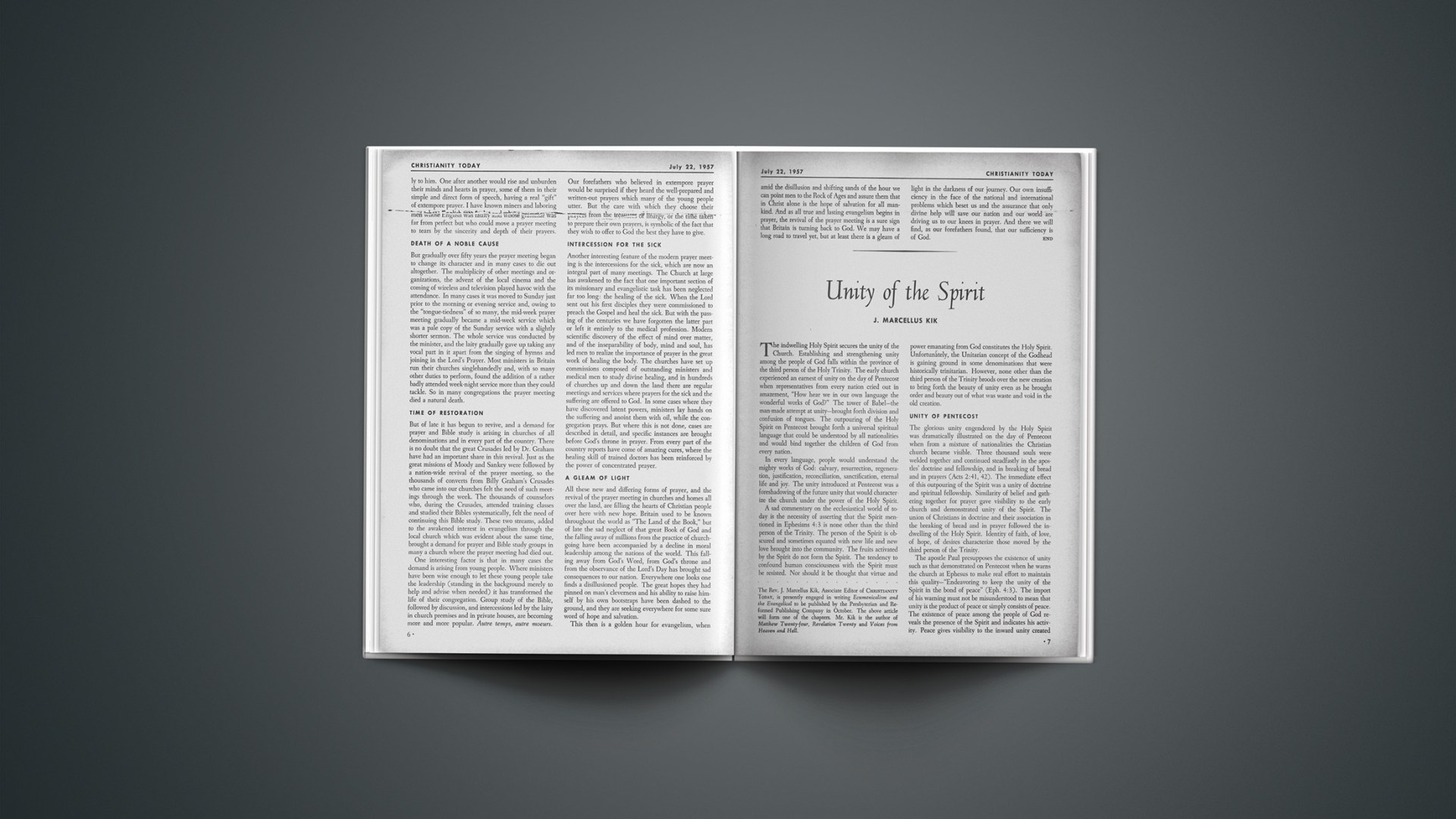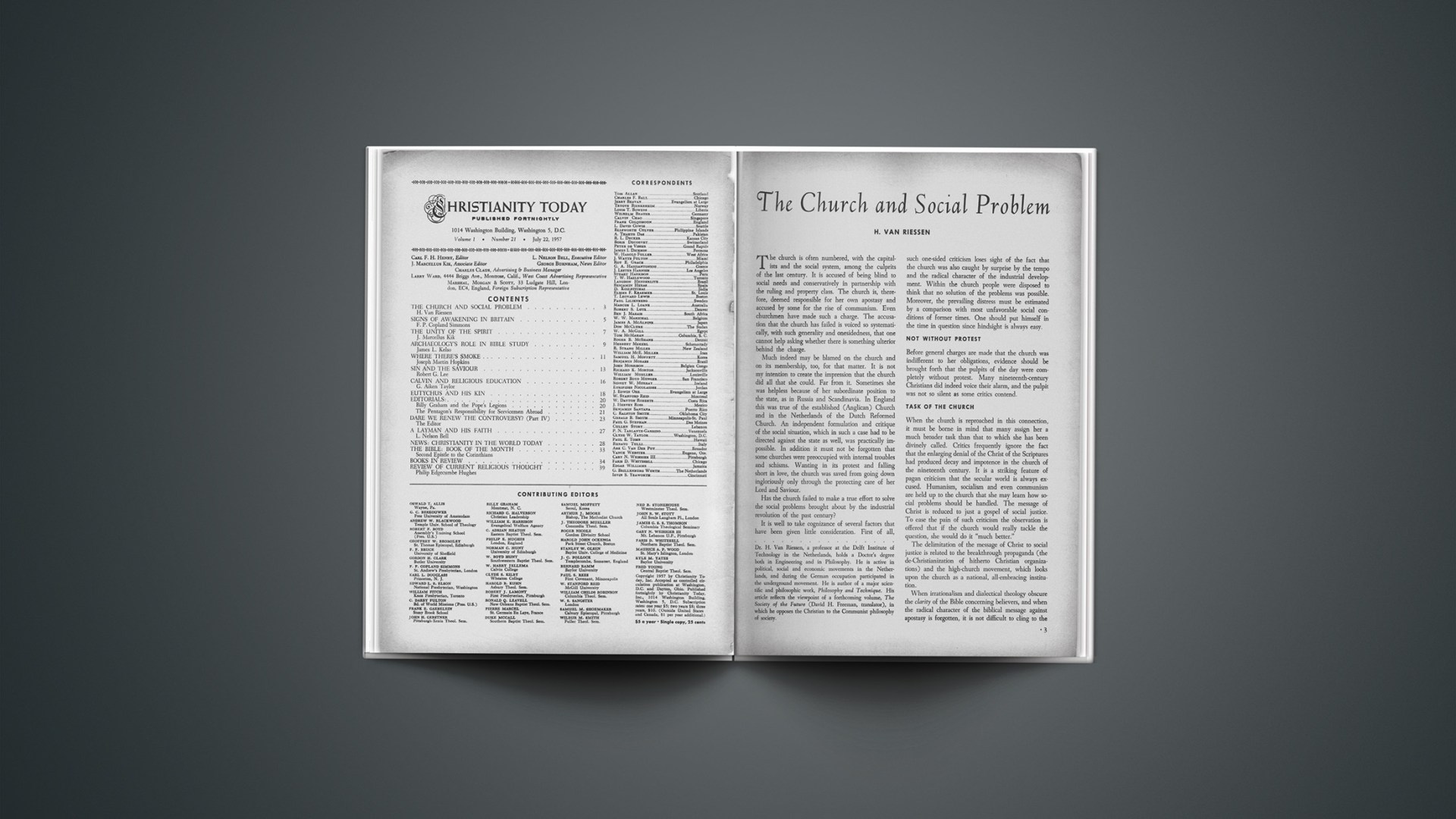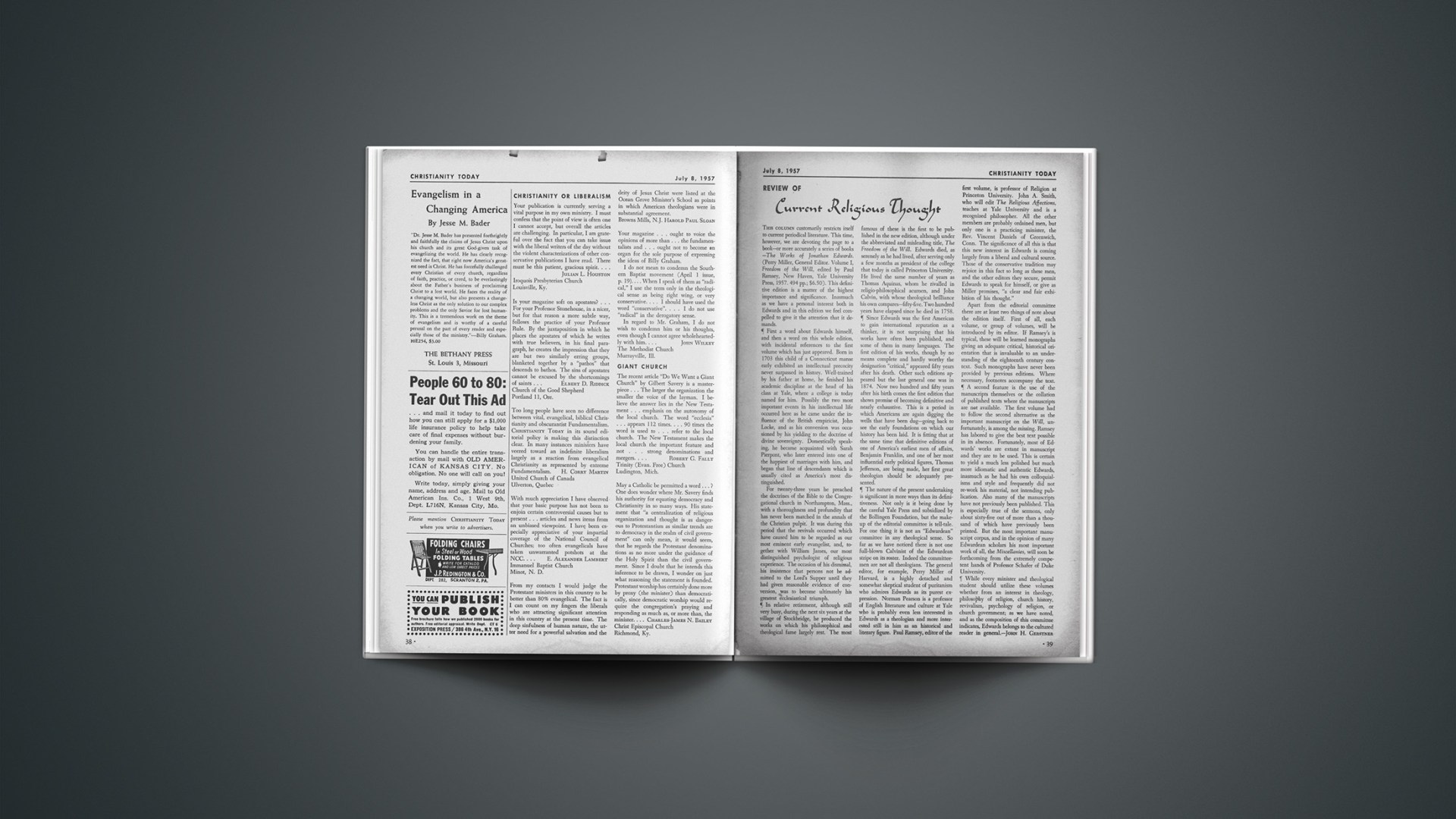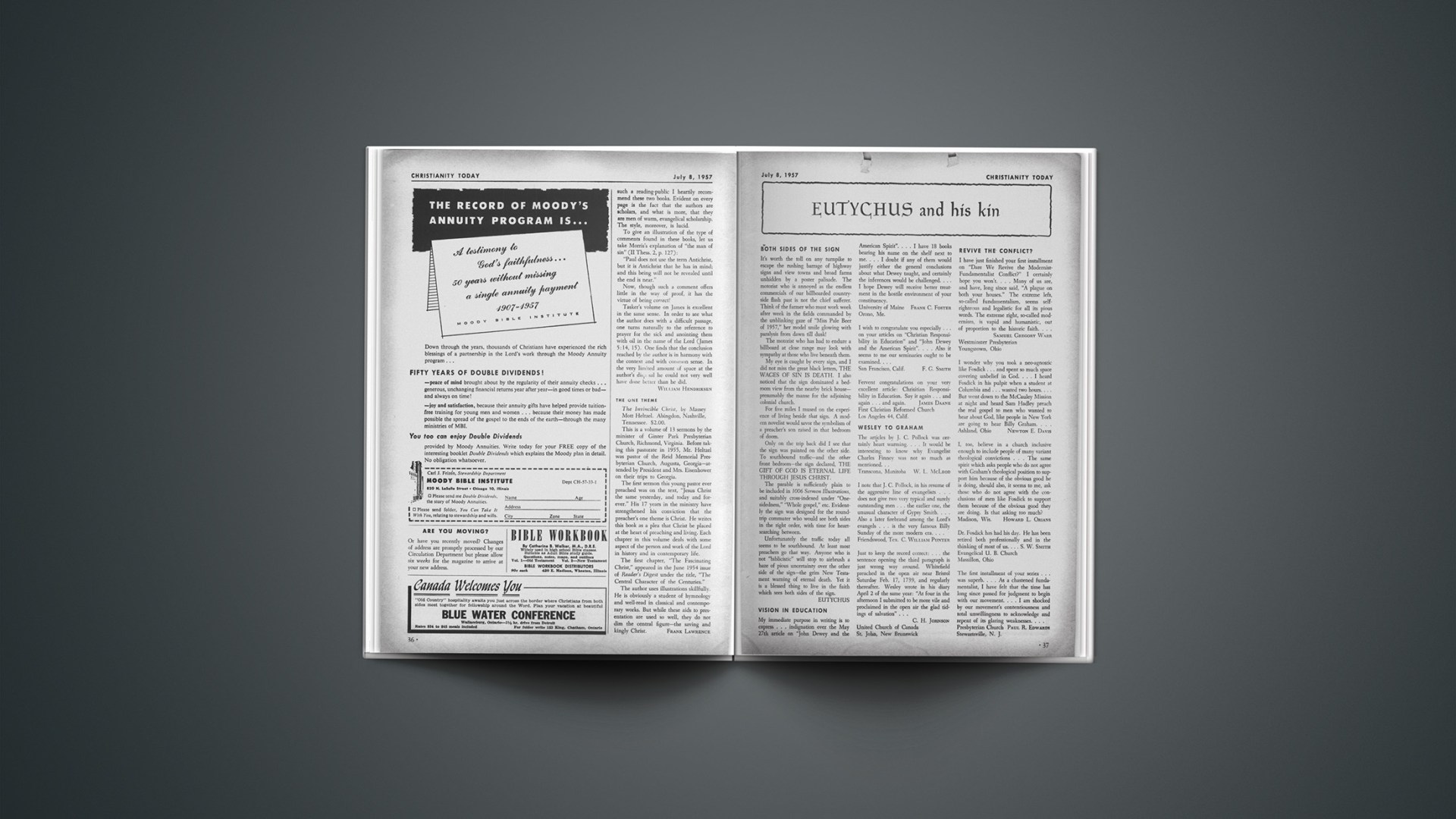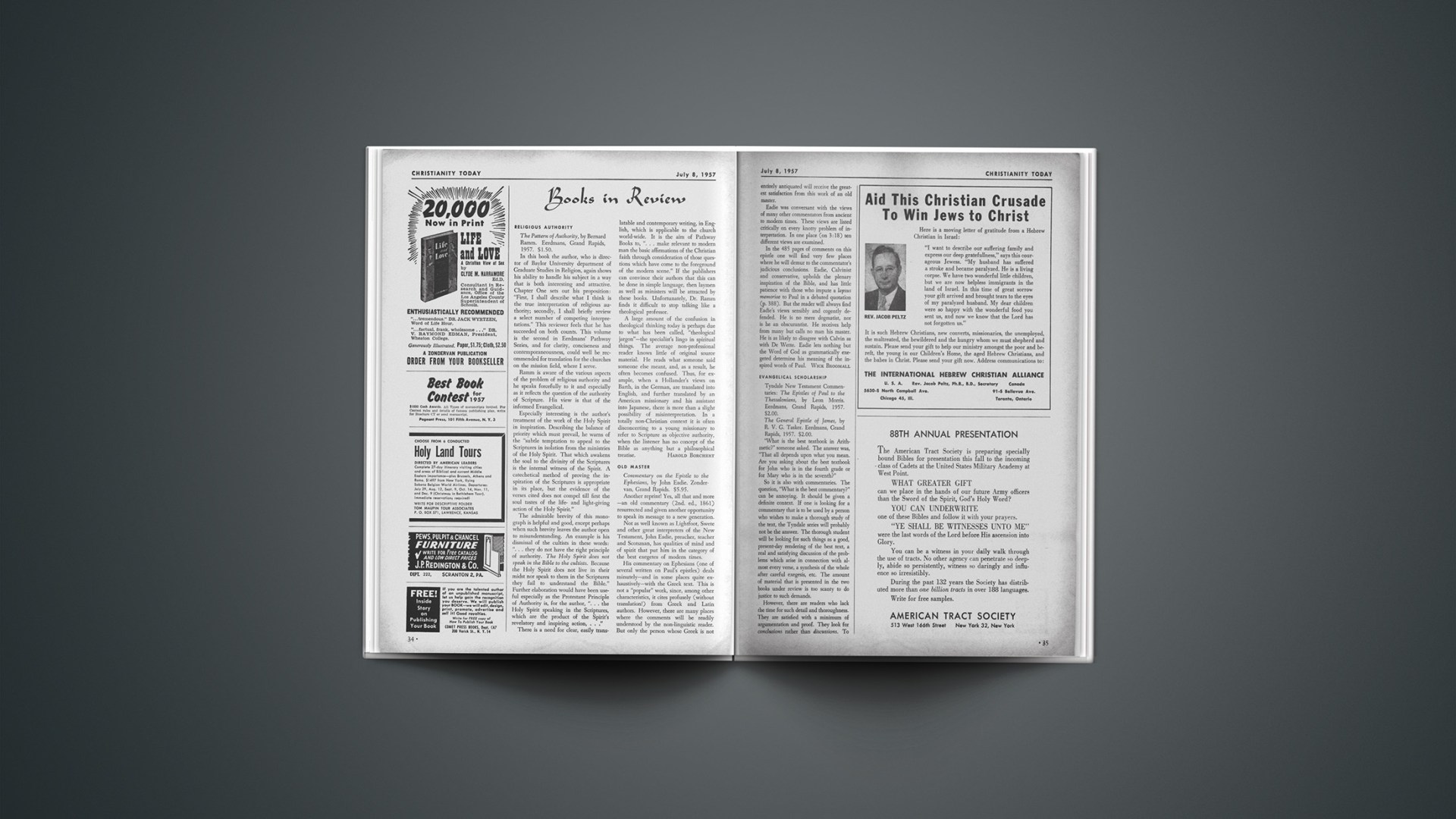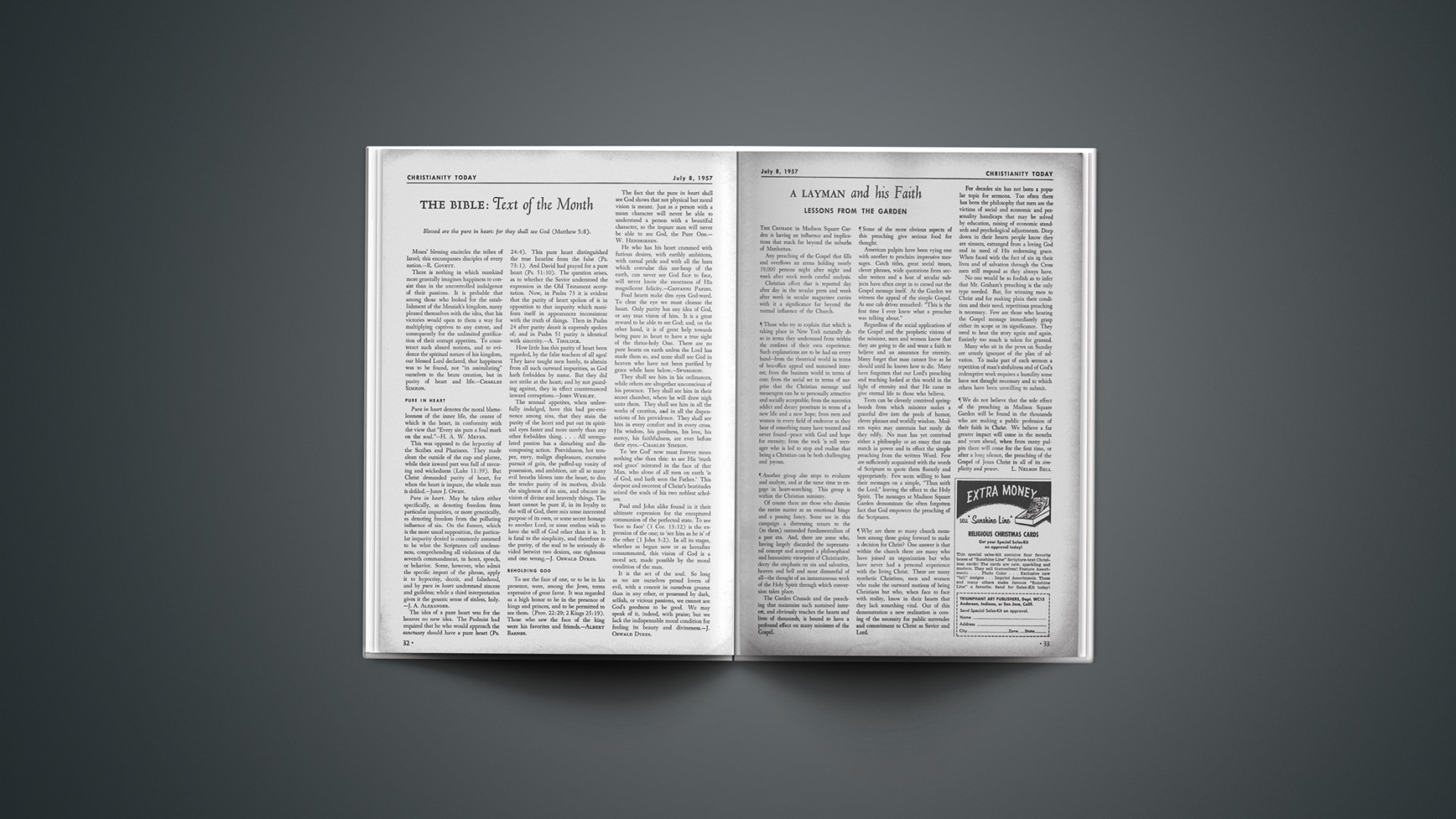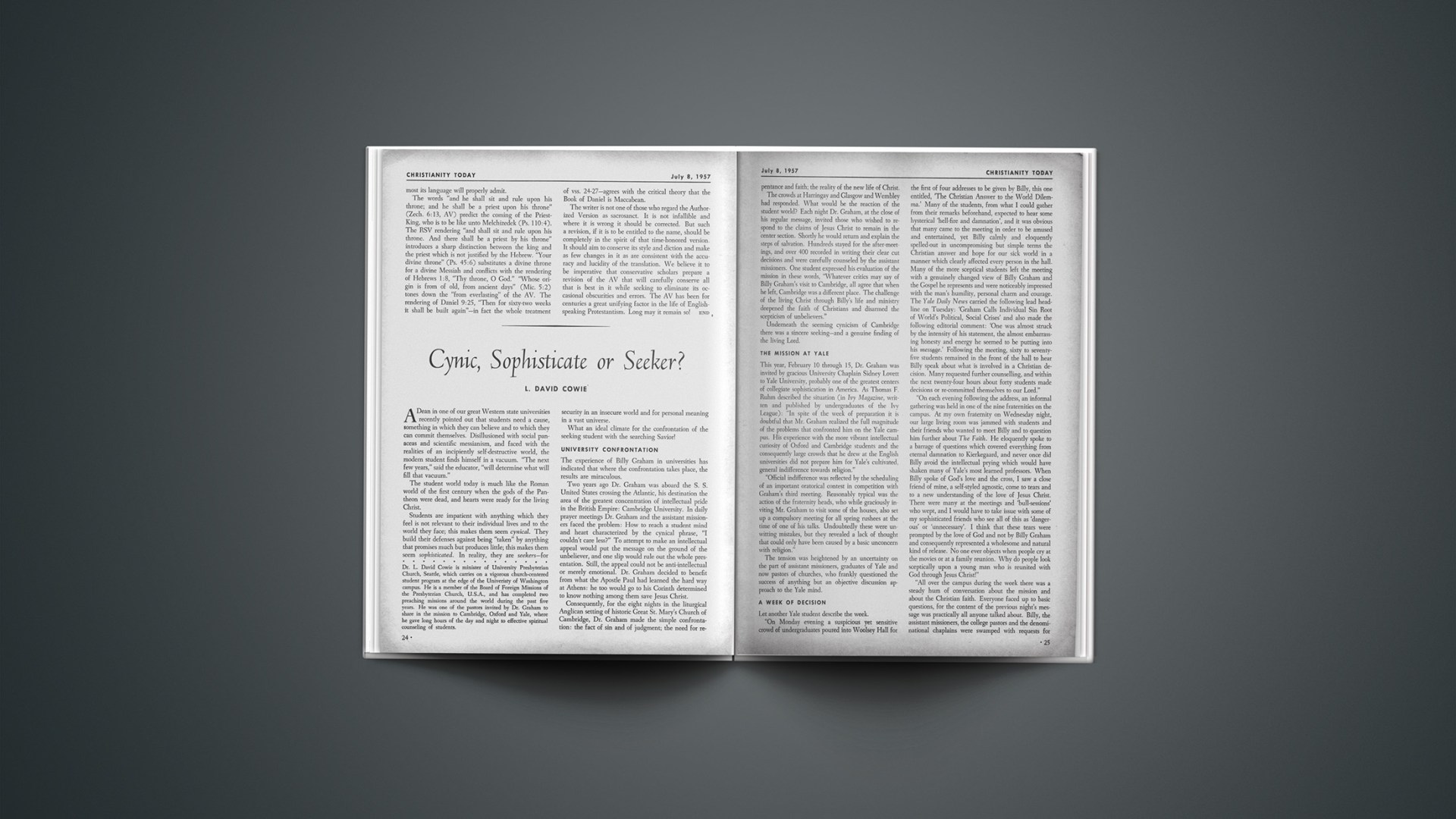Among the most fortunate Bible students today are those specializing in biblical archaeology, for they have a wealth of information on Bible times that is not available to the average minister. Indeed, biblical archaeology is so young a science that it has not yet produced popular writers to bring its vast store of knowledge to the Bible-reading public.
Life In Bible Times
Archaeology’s aim is to learn everything possible about life in Bible days. It is therefore interested first of all in geography, for history has its roots in the soil. Scientific geography was a very late comer to Bible study. It was not until 1838 that Edward Robinson gave us a good geography of Palestine; and it was 1878 before we had an accurate map of the land, and then it was only of western Palestine. Digging was done as early as the time of the American Civil War, but the father of all professional archaeologists, Flinders Petrie, did not excavate in Palestine until 1890, and then only a brief campaign. Although sporadic digs were conducted in the succeeding years, no accurate over-all detailed pattern of Palestinian archaeology was discovered until after the First World War. Then came a veritable flood of information, which revolutionized our knowledge of the Bible lands. Oddly enough, however, the period of Palestinian life on which the least digging has been done to date is that covering the earthly life of Christ. That is one reason why the Dead Sea scrolls are so invaluable. In striking contrast to the absence of work by New Testament scholars on the Palestine of Christ’s time is the early archaeological work on Paul by Sir William Ramsey. All students of the great apostle are deeply indebted to Ramsey.
Egypt and Mesopotamia also throw a wealth of light on the Old Testament. Egypt’s geographic closeness created a lasting commercial relationship, which shows up in the objects excavated in Palestine; but the Euphrates valley left the greater intellectual imprint. More recently nearby Syria and Anatolia are contributing their quota of information.
In the early days of work in Egypt and Mesopotamia, the literary findings were often incorrectly interpreted. There was such an anxiety to relate this material to the Bible that often both liberals and conservatives missed the true values.
Beyond The Reformation
Enough work has now been done in all phases of archaeological research so that the general pattern of Bible life stands out clearly for the first time, although much work must yet be done before the picture can be filled in completely. One naturally asks what is the over-all picture of Bible life that archaeology has dug up? Does it differ from the traditional view of the Reformation? And how does it evaluate the liberalism of pre-world-war dates? Also what new material does it furnish for Bible study? When we realize that the reformers had none of the tools of archaeological research except the linguistic ones, we are surprised to see how well they worked out the general interpretation of Scripture. Both liberals and conservatives still call Calvin a good commentator. But archaeology has uncovered a vast new world of information that was not available to the reformers, and our present need is for commentators with the faith of the reformers and the information of the archaeologists. Such scholars are a “must” for the future of Bible study.
Above Liberalism
Much of the strength behind liberalism was its early use of archaeology. In those days, however, archaeology was a young science; and in all young sciences “too big conclusions are drawn from too little evidence.” To the liberals, similarity to biblical material meant a copying by biblical writers. For example, the similarities of the Mosaic legislation to the Hammurabi code were stressed, but the differences were largely ignored. Today we know that a common Semitic law lay behind both but that each fitted into its own particular time and locale. Alt, Albright, Mendenhall and others have proved the unique nature of the Mosaic Covenant.
Another feature of liberalism was to deny the historicity of the patriarchs and to treat that section of the Bible as late historic fiction. Although we cannot yet date the patriarchs to exact years, they definitely belong in the Middle Bronze Age. Then and only then do we find the many unique features paralleled in those narratives.
Old Testament liberalism grew strong under the evolutionary theory of history. Israelite religion was considered as the natural culmination of Canaanite religion—a refinement to be true, but nevertheless of common origin. Today we know that the exact opposite is true. Mosaic monotheism is unique! Again and again Israel turned to Canaanite religion and again and again she tried to synthesize it with Jehovah worship, but the revealed religion of the Old Testament was always unique. Her champions were often small in number, but ultimately their faith prevailed until at last the Messianic heart of their message became incarnate in the person of Jesus, the Christ.
Essay And Biography
Today archaeology presents the following picture of the Bible. Genesis consists of two unequal sections: the first, and shorter, of highly condensed theological essays and a second longer one of theological biographies. In the Bible, history is written with a definite theological emphasis. As already stressed, the Abrahamic and succeeding narratives are definitely historic. The other books of the Pentateuch are likewise historical. Year by year archaeological research is demonstrating that a larger portion of the legal sections belong approximately to the Mosaic period; and at the same time a smaller percentage of material has any likelihood of coming from a late date. Note that the prophetic period of the Old Testament was the manufacturing age of Israel’s history, with modern assembly-line techniques in use and with the shifting of farm and factory population just as we have it today. But the Pentateuchal legislation has no laws dealing with Israel’s manufacturing age. The prophets, however, struggled constantly with this problem. Much work yet remains to be done on the Pentateuch but the general pattern seems fixed.
Support For Historicity
Joshua’s conquest is definitely demonstrated and can be dated shortly before 1200 B.C. Of the seven cities referred to in the narrative, which have been excavated, six have given a conclusive demonstration of the historicity of the Israelite conquest. Only Jericho fails to present a demonstration and even here circumstantial evidence favors historicity. The book of Judges is paralleled in the findings of excavations from that period. When David and Solomon came to power, their international contacts lend new check references and demonstrate their influence even outside of Palestine. The Mosaic period was the first great religio-culture climax and the David-Solomon period was the second. Religion was no longer simply a feature of farm and village. City culture must also be religious. The tribe lost its importance to the federal government, but Jehovah was still King of kings, and David was as subservient to him as was any commoner. With the divided kingdom and the prophetic period archaeological data becomes more voluminous both in Palestine and those lands which had contact with her. New light is also cast on the post-exilic period both in Palestine and Babylonia. The century preceding Alexander the Great still needs better delineation, but the Maccabaean period and the Herodian days are much better known than the years of the earthly ministry of Jesus, the Christ. With Paul we come into a superabundance of archaeological data and can reconstruct much of his labors.
The Dead Sea scrolls are most valuable aids for Gospel research, for they open up a new phase of Jewish life in the days of Jesus. Not only did Pharisee and Sadducee reject him but the Essenes did also. These three Old Testament sects all failed to recognize the Messiah. The uniqueness of Christianity stands out clearly as we compare it with the Essene creed and life. Indeed, Christianity is so phenomenally unique that it has always been hard to convince people of this uniqueness. It is a blessing that we have the Holy Spirit to demonstrate to us the uniqueness of Christ, the Trinity, the Church and the Bible. The Dead Sea scrolls, however, do give a wealth of minor cross-reference data for use in New Testament research. W. F. Albright, the world’s best archaeological authority in both the Old Testament and the New Testament, insists that there is now no longer any major reason why we need to date any New Testament book later than A.D. 80.
The Situation In Life
Now comes the big question. How does the Christian archaeologist study his Bible? In so far as is possible, he tries to reconstruct the total setting of the passage he is studying. That means geography and linguistics, customs and manners, people and things, commoners and scholars, sinners and saints, businessmen and politicians, art and literature, gods and God! If we use this method for the period of the Exodus, we find that the providence and grace of Jehovah shines out in vastly increased splendor. And all of this is in striking contrast to the impotence of both the Egyptian and the Canaanite religions which were the reliance of Pharaoh Rameses. The Ten Commandments are best appreciated against those contemporary religions. The church in the wilderness was still the same church where Christ worshipped in Jerusalem, although its full reality was not seen of men until after Pentecost. The old Canaanite saw much significance in Bible history which we may miss. Baal was the great Canaanite god of that land and in his hand alone was the power of water and the storm. But Israel went dry-shod through Jordan! More Canaanites were lost in the storm of Ajalon than died by Joshua’s arms! Samuel had a similar experience and Sisera was defeated by a cloudburst. Elijah, who later appeared with Christ on the Mount of Transfiguration, defeated the priests of Baal on Mt. Carmel.
We know now that Israel was a truly democratic people. The civilization of Palestine before and after Joshua presents a striking contrast. Before him there was the patrician and his serfs, fine houses, and slave quarters. After Joshua all people fit into a common pattern—all houses were small and everyone was poor. When wealth grew, however, democracy stayed on. Saul, the king, was restrained by the common people from fulfilling his vow on Jonathan. Even cruel Joab refused for a time to carry out David’s census and create a Federal army in place of the tribal militia. Under Rehoboam Israel invoked the referendum and recall and broke off from the Davidic dynasty. Naboth refused to sell to king Ahab, for it was the right of every Israelite to be a free man and to hold his old ancestral land. Democracy continued to be one of the major preachments of the prophets.
The place of customs and manners in the interpretation of a Bible book is well seen in Paul’s letters to the Corinthians. Here was one of the great manufacturing and shipping cities of New Testament times. Here were gathered rich manufacturers and their slave workers. Here Aphrodite was worshipped in one of the last major sanctuaries of the fertility cults. Now read Paul’s words on the resurrection and realize what consolation they would bring to the slave members of his congregation, to whom this present life offered no hope. Think of Paul’s hymn on love against the background of Aphrodite. Here too Paul won a striking legal decision for Christianity. His Jewish opposition tried to convince the Roman governor that Christianity was not related to Judaism and was therefore an illegal religion, but Gallio refused their plea and thus ruled that Christianity was a legal faith in the Empire.
Finally, what does archaeology do to the historic creed of the church universal? It makes it more unique than ever! Revelation alone can account for our faith. “God so loved the world that he gave his only begotten son, that whosoever believeth on him should not perish, but have eternal life.” But in all of history, century after century God was weaving ten thousand times ten thousand details into this pattern of revelation and preparing his Messianic pattern for the redemption of mankind through his Son, Jesus the Christ.
END
James L. Kelso is one of America’s best-informed biblical archaeologists. He has served as Professor of Old Testament at Pittsburgh-Xenia Seminary since 1923, and is author of The Ceramic Vocabulary of the Old Testament (1948) and of Excavations at New Testament Jericho and Khirbet en-Nitla (1955). In 1949–50 he was Director of the American Schools of Oriental Research in Jerusalem.



